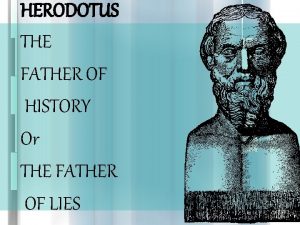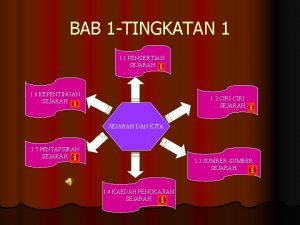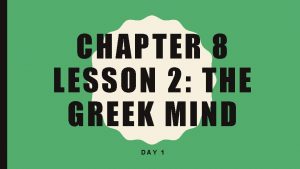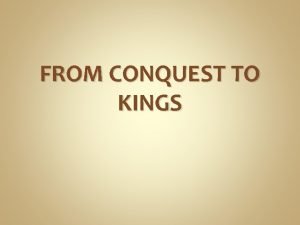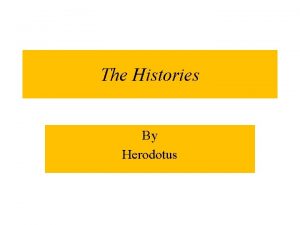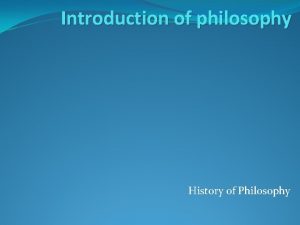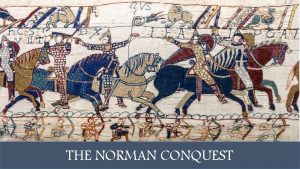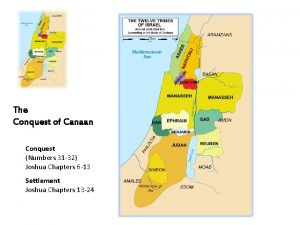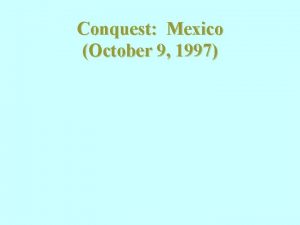HISTORY PHILOSOPHY CONQUEST HISTORY Herodotus father of history










- Slides: 10

HISTORY, PHILOSOPHY, & CONQUEST

HISTORY �Herodotus – “father of history” vfrequently added fables and superstition to the facts vwrote about the Persian Wars �Thucydides – “ 1 st scientific historian” v accurate & impartial view of the Peloponnesian War v. Very demanding in his methodology

PHILOSOPHY Socrates Plato Aristotle

SOCRATES �believed in absolute standards for truth & justice �“Socratic Method” – believed all knowledge was innate and the teacher had to draw it out through constant questioning �convicted of corrupting the youth of Athens (chose to drink poison rather than exile)

plato �Socrates’ most famous student �The Republic v. Outlined the ideal society in which people are divided into three groups (gold – philosophers, silver – warriors, bronze – farmers) vgovernment should be run by the smartest v“Allegory of the Cave” �His school in Athens was The Academy


ARISTOTLE �Plato’s most famous student �Traveled widely and often disagreed with Plato on many topics �Set up his school called the Lyceum, which taught all branches of knowledge �Believed the best government would be run by a single virtuous ruler �His most famous student was Alexander the Great

CONQUEST

Macedonian Conquest (338 – 323 BC) �Phillip II (King of Macedonia) loved Greek culture (conquered all of Greece except Sparta) �His son Alexander came to power @ 20 �Over 13 years Alexander conquered Sparta, Persia, Egypt, Asia Minor, and India �Hellenistic culture – a blend of Greek, Egyptian, Persian, & Indian cultures v. Alexander built cities all over his empire (called Alexandria) as beacons of this new culture

WHAT NOT TO DO! �After his conquests, Alexander settled in Babylon for a “carpe diem” lifestyle �He died at the age of 32, but unfortunately failed to name a successor �Empire split between his generals v. Antigonus – Greece v. Ptolemy – Egypt v. Seleucus – Persia
